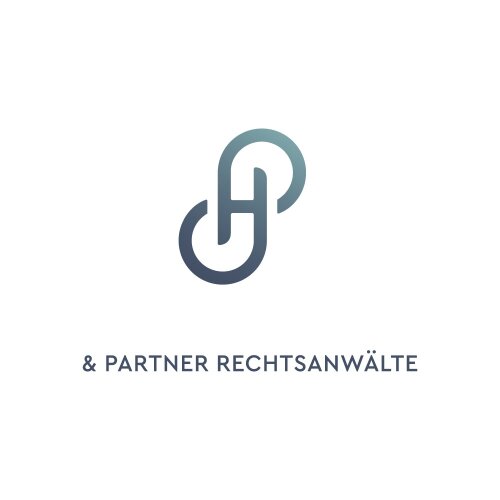Best Animal Law Lawyers in Liechtenstein
Share your needs with us, get contacted by law firms.
Free. Takes 2 min.
Or refine your search by selecting a city:
List of the best lawyers in Liechtenstein
About Animal Law in Liechtenstein
Animal Law in Liechtenstein encompasses a range of legal issues that focus on the status and rights of animals. The field addresses legislation, regulations, and case law that pertains to the treatment and welfare of animals. These laws aim to protect animals from cruelty, ensure their well-being, and regulate human-animal interactions. Liechtenstein, being a part of the European legal framework, adopts many EU standards and directives to maintain animal welfare at a high level.
Why You May Need a Lawyer
There are several situations where you might need legal advice in the field of Animal Law. Some common scenarios include:
- Cases involving animal cruelty or neglect where legal prosecution or defense may be necessary.
- Disputes arising from pet ownership, including custody or property damage cases.
- Issues related to livestock and farming practices, especially if facing regulatory compliance challenges.
- Concerns regarding wildlife protection and habitat conservation.
- Understanding the legal obligations and rights related to breeding, selling, or purchasing animals.
Local Laws Overview
Liechtenstein's Animal Law is influenced by several key pieces of legislation that outline the minimum standards of animal treatment. These include the Animal Welfare Act, which emphasizes the humane treatment and care of animals. The Regulations Concerning Animal Protection further delineate specific requirements for housing, feeding, and medical care for animals. Also important is the Wildlife and Conservation Act, which protects the native wildlife species and their habitats. Importantly, adherence to EU animal welfare laws ensures a consistent standard across many sectors affecting animals.
Frequently Asked Questions
What defines animal cruelty under Liechtenstein law?
Animal cruelty in Liechtenstein is defined as inflicting any unnecessary pain, suffering, or harm to an animal. This includes neglecting their basic needs, subjecting them to harsh environments, or using physical violence.
Are there specific laws regarding the adoption of animals?
Yes, animal adoptions are governed by laws that ensure both the adopter and the animal meet certain criteria to promote a safe and healthy transition.
Who enforces Animal Law in Liechtenstein?
The enforcement is typically carried out by the local authorities, often in conjunction with animal welfare organizations and the police when necessary.
Can I keep wild animals as pets?
Keeping wild animals as pets in Liechtenstein is heavily regulated and often prohibited to ensure public safety and animal welfare.
How are animal welfare cases prosecuted?
Cases involving animal welfare violations are usually prosecuted in the court system and may involve fines, imprisonment, or probation depending on the severity of the offense.
Do these laws apply to animals used in entertainment or sports?
Yes, animals used in entertainment and sports are covered by animal welfare laws to prevent exploitation and ensure humane treatment.
What legal responsibilities do pet owners have?
Pet owners are responsible for providing adequate food, shelter, medical care, and ensuring their pets are not causing harm to others or the environment.
Are there regulations on breeding animals?
Breeding animals is subject to strict regulations to prevent overpopulation, ensure their welfare, and maintain good health standards for the animals involved.
How does Liechtenstein handle stray animal populations?
Stray animals are managed through public shelters or regulated organizations that focus on their adoption and welfare.
What is the role of animal welfare organizations in Liechtenstein?
These organizations often work alongside government bodies to ensure compliance with animal laws, handle rescue operations, and promote public awareness on animal rights and welfare issues.
Additional Resources
For further assistance and information, consider reaching out to:
- The Ministry of Environmental and Health Protection - They provide guidance and enforcement related to animal welfare laws.
- Local animal shelters and rescue organizations - They can provide practical advice on issues related to pet care and adoption.
- Liechtenstein Bar Association - They can help you find a qualified lawyer specializing in Animal Law.
Next Steps
If you need legal assistance in Animal Law, start by gathering all relevant information you have on your situation. Determine whether your issue falls under civil, criminal, or regulatory law. Then, contact a qualified Animal Law attorney who can offer specialized advice and representation if necessary. Additionally, reaching out to local animal welfare groups can provide immediate support or guidance on how to proceed with your specific case.
Lawzana helps you find the best lawyers and law firms in Liechtenstein through a curated and pre-screened list of qualified legal professionals. Our platform offers rankings and detailed profiles of attorneys and law firms, allowing you to compare based on practice areas, including Animal Law, experience, and client feedback.
Each profile includes a description of the firm's areas of practice, client reviews, team members and partners, year of establishment, spoken languages, office locations, contact information, social media presence, and any published articles or resources. Most firms on our platform speak English and are experienced in both local and international legal matters.
Get a quote from top-rated law firms in Liechtenstein — quickly, securely, and without unnecessary hassle.
Disclaimer:
The information provided on this page is for general informational purposes only and does not constitute legal advice. While we strive to ensure the accuracy and relevance of the content, legal information may change over time, and interpretations of the law can vary. You should always consult with a qualified legal professional for advice specific to your situation.
We disclaim all liability for actions taken or not taken based on the content of this page. If you believe any information is incorrect or outdated, please contact us, and we will review and update it where appropriate.
Browse animal law law firms by city in Liechtenstein
Refine your search by selecting a city.










